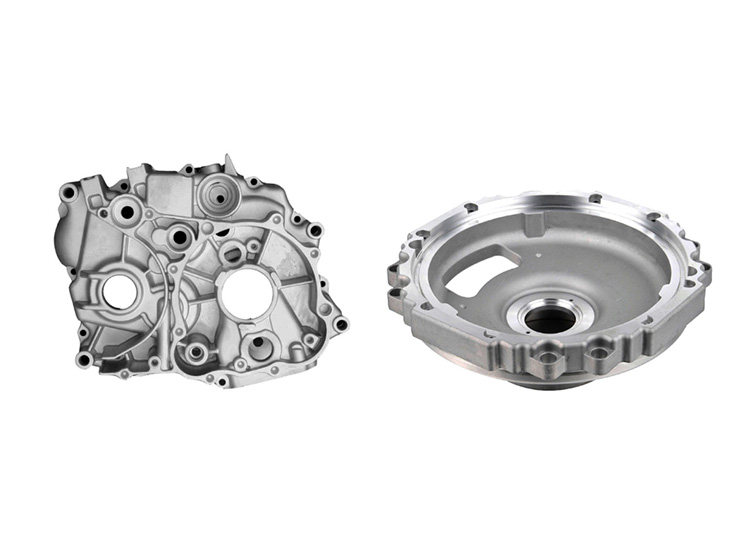Alcast Company - An Overview
Alcast Company - An Overview
Blog Article
Getting My Alcast Company To Work
Table of ContentsAlcast Company - An OverviewGet This Report on Alcast CompanyThe 20-Second Trick For Alcast CompanyAlcast Company Fundamentals ExplainedExcitement About Alcast CompanyAlcast Company Can Be Fun For Everyone
The subtle difference depends on the chemical material. Chemical Contrast of Cast Aluminum Alloys Silicon advertises castability by minimizing the alloy's melting temperature level and enhancing fluidness throughout casting. It plays a vital duty in enabling complex mold and mildews to be loaded precisely. In addition, silicon adds to the alloy's strength and use resistance, making it beneficial in applications where sturdiness is critical, such as automobile parts and engine elements.It additionally boosts the machinability of the alloy, making it less complicated to refine right into completed products. In this means, iron adds to the total workability of aluminum alloys.
Manganese adds to the stamina of aluminum alloys and enhances workability (Foundry). It is commonly made use of in functioned light weight aluminum products like sheets, extrusions, and profiles. The presence of manganese aids in the alloy's formability and resistance to splitting throughout fabrication procedures. Magnesium is a light-weight aspect that offers stamina and impact resistance to light weight aluminum alloys.
The Facts About Alcast Company Revealed
It allows the manufacturing of light-weight elements with excellent mechanical residential or commercial properties. Zinc improves the castability of light weight aluminum alloys and helps manage the solidification procedure during spreading. It boosts the alloy's toughness and hardness. It is typically located in applications where elaborate shapes and great information are necessary, such as attractive spreadings and particular automotive parts.

The primary thermal conductivity, tensile toughness, yield strength, and elongation differ. Among the above alloys, A356 has the highest thermal conductivity, and A380 and ADC12 have the most affordable.
Unknown Facts About Alcast Company

In precision spreading, 6063 is fit for applications where detailed geometries and top notch surface finishes are extremely important. Examples consist of telecommunication enclosures, where the alloy's premium formability permits for sleek and visually pleasing layouts while maintaining structural honesty. In the Lights Solutions industry, precision-cast 6063 components produce elegant and effective lights components that need elaborate forms and excellent thermal performance.
The A360 exhibits Casting Foundry superior prolongation, making it suitable for facility and thin-walled parts. In accuracy casting applications, A360 is fit for industries such as Customer Electronic Devices, Telecommunication, and Power Devices.
Alcast Company Fundamentals Explained
Its unique residential or commercial properties make A360 a beneficial selection for accuracy spreading in these industries, boosting product sturdiness and top quality. Aluminum alloy 380, or A380, is a commonly made use of spreading alloy with several unique features. It provides superb castability, making it a perfect option for precision spreading. A380 shows good fluidity when molten, guaranteeing elaborate and comprehensive molds are precisely duplicated.
In precision casting, aluminum 413 shines in the Consumer Electronic Devices and Power Equipment markets. It's generally made use of to craft intricate components like smart device real estates, cam bodies, and power device cases. Its precision is remarkable, with limited tolerances up to 0.01 mm, ensuring flawless item setting up. This alloy's premium corrosion resistance makes it an excellent choice for exterior applications, making sure lasting, resilient products in the stated industries.
More About Alcast Company
Once you have actually made a decision that the aluminum die casting procedure appropriates for your task, an important following action is choosing the most proper alloy. The light weight aluminum alloy you select will substantially affect both the spreading procedure and the properties of the last item. Due to this, you have to make your choice very carefully and take an educated strategy.
Determining the most ideal light weight aluminum alloy for your application will certainly suggest considering a large selection of characteristics. These comparative alloy qualities follow the North American Die Casting Association's guidelines, and we've divided them into 2 classifications. The initial group addresses alloy attributes that impact the production procedure. The second covers qualities influencing the homes of the end product.
The Buzz on Alcast Company
The alloy you select for die casting straight affects several elements of the spreading process, like how very easy the alloy is to work with and if it is vulnerable to casting problems. Warm breaking, additionally known as solidification breaking, is a typical die casting defect for light weight aluminum alloys that can lead to internal or surface-level rips or cracks.
Certain light weight aluminum alloys are much more prone to hot splitting than others, and your selection must consider this. Another typical flaw located in the die casting of light weight aluminum is die soldering, which is when the actors adheres to the die walls and makes ejection challenging. It can damage both the actors and the die, so you should search for alloys with high anti-soldering residential properties.
Rust resistance, which is currently a significant feature of aluminum, can differ considerably from alloy to alloy and is an essential characteristic to consider depending upon the environmental problems your product will be subjected to (aluminum casting company). Use resistance is an additional property typically looked for in light weight aluminum products and can distinguish some alloys
Report this page